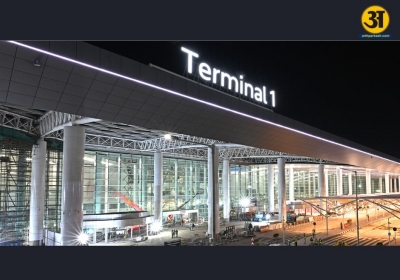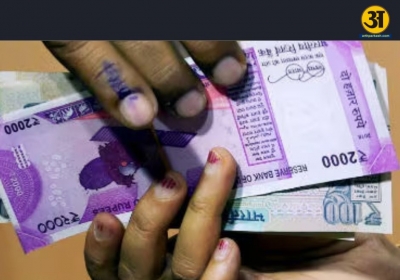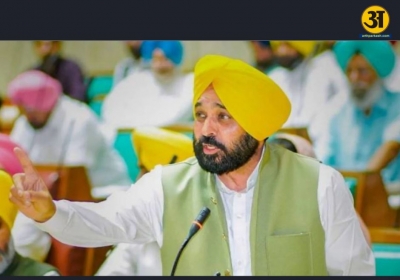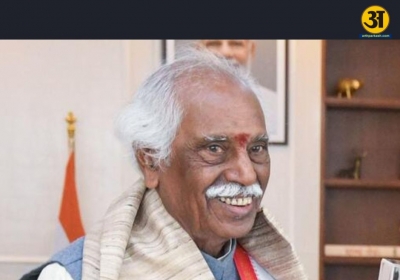
The first phase of voting, which took across 58 Assembly constituencies in 11 districts in UP.
Phase 1 records above 60% vote in UP Assembly elections 2022
The first phase of voting, which took place on Thursday across 58 Assembly constituencies in 11 districts of Uttar Pradesh, saw voter participation of above 60%.
Following a one-hour extension according to COVID-19 protocols, polling ended at 6 p.m. According to poll officials, the day went off without a hitch, with minor technical hiccups in a few EVMs.
"There were reports of a technical error in EVMs at some places," stated Additional Chief Election Officer (ACEO) B.D. Ram Tiwari. He stated that as the reports came in, those EVMs were being replaced.
Mr. Tiwari responded to the Samajwadi Party's claim that poor people were denied the right to vote in the Dundukheda village, Kairana Assembly constituency, by saying that the district magistrate in charge was requested to look into the situation.
According to an EC report, Agra received 60.33 percent of the vote, Aligarh 60.49 percent, Baghpat 61.35 percent, Bulandshahr 60.52 percent, Gautam Buddh Nagar 56.73 percent, Ghaziabad 54.77 percent, Hapur 60.50 percent, Mathura 63.28 percent, Meerut 60.91 percent, Muzaffarnagar 65.34 percent, Shamli 69.42 percent.
According to the report, these constituencies received 63.47 percent of votes during the 2017 assembly elections.
Around 2.28 crore voters, including 1.24 crore men and 1.04 crore women, are eligible to vote in the first phase, according to state EC officials.
Shrikant Sharma, Suresh Rana, Sandeep Singh, Kapil Dev Agarwal, Atul Garg, and Chowdhury Lakshmi Narain are among the state ministers whose fates will be decided in the first round of voting.
On Tuesday evening, campaigning in the constituencies that will vote in the first round of the seven-phase election in the politically significant state came to a close.
Prime Minister Narendra Modi, who led the BJP's campaign, advocated for a two-engine administration to speed up development while criticizing the Samajwadi Party-Rashtriya Lok Dal (RLD) alliance.
While Union Home Minister Amit Shah and Uttar Pradesh Chief Minister Yogi Adityanath attempted to refocus attention on the purported "exodus" of Hindus from Kairana prior to 2017, SP president Akhilesh Yadav declared that the people have decided to throw the BJP out of power.
The SP-RLD coalition has focused its electioneering on issues affecting farmers and has criticized Yogi Adityanath over election pledges.
Mayawati, the BSP's leader, who began campaigning late, reminded voters of her government's previous record on law and order.
The Congress, led by its general secretary Priyanka Gandhi Vadra, has sparked public enthusiasm, as seen by door-to-door campaigning.
The first phase of polling covers the Jat-dominated zone of western UP, where farmers took part in the national capital protests against the Centre's three agri legislation.
The BJP won 53 of the 58 seats in the region is 2017, while the Samajwadi Party and the BSP each received two. The Rashtriya Lok Dal had won one of the seats.
About half of the people in Kairana are Muslims. People were migrating from Kairana, according to a 2016 study by the National Human Rights Commission, because of the worsening law and order situation and increase in criminal activity. The 2013 Muzaffarnagar riots may continue to have an impact in Baghpat, with some Jat farmers supporting the Lok Dal this time and others criticizing the Samajwadi Party's handling of the violence. The elections in Uttar Pradesh will be contested in seven phases, with the results being announced on March 10. Here's a link to our five-year series on the BJP's sweeping victory in Uttar Pradesh.
Read more: It a womans right to wear anything says Priyanka Gandhi
- UP assembly elections 2022
- tournout above 60%
- Uttarpradesh
- UP elections
- uttar pradesh
- uttar pradesh Assembly election
- uttar pradesh Assembly polls
- uttar pradesh election
- uttar pradesh elections
- uttar pradesh assembly elections
- Assembly election
- assembly constituencies
- bjp
- samajwadi party
- akhilesh yadav





